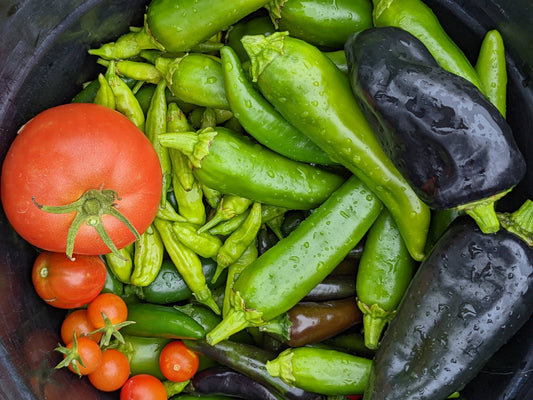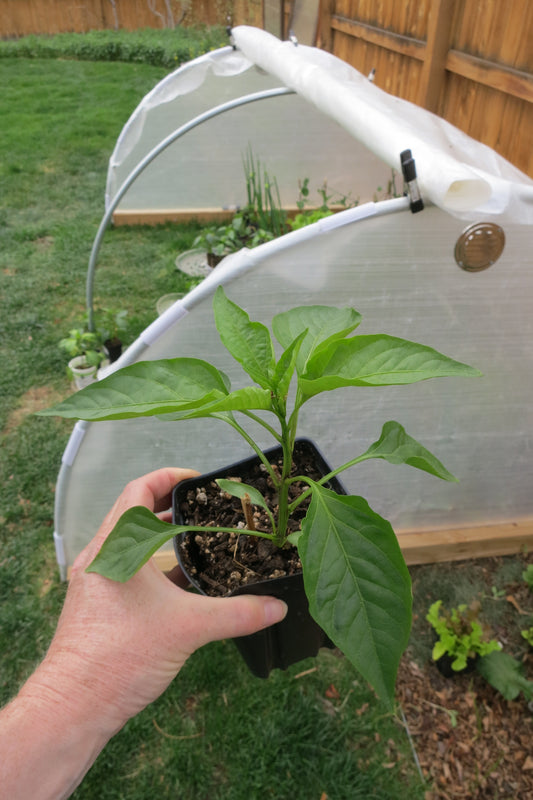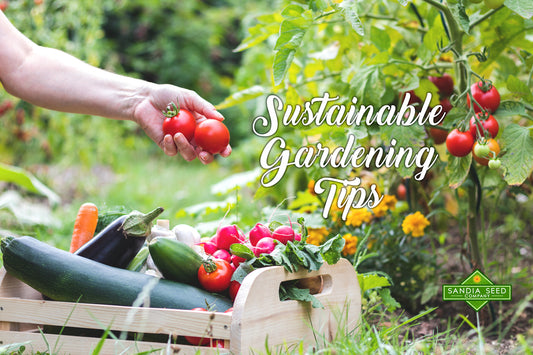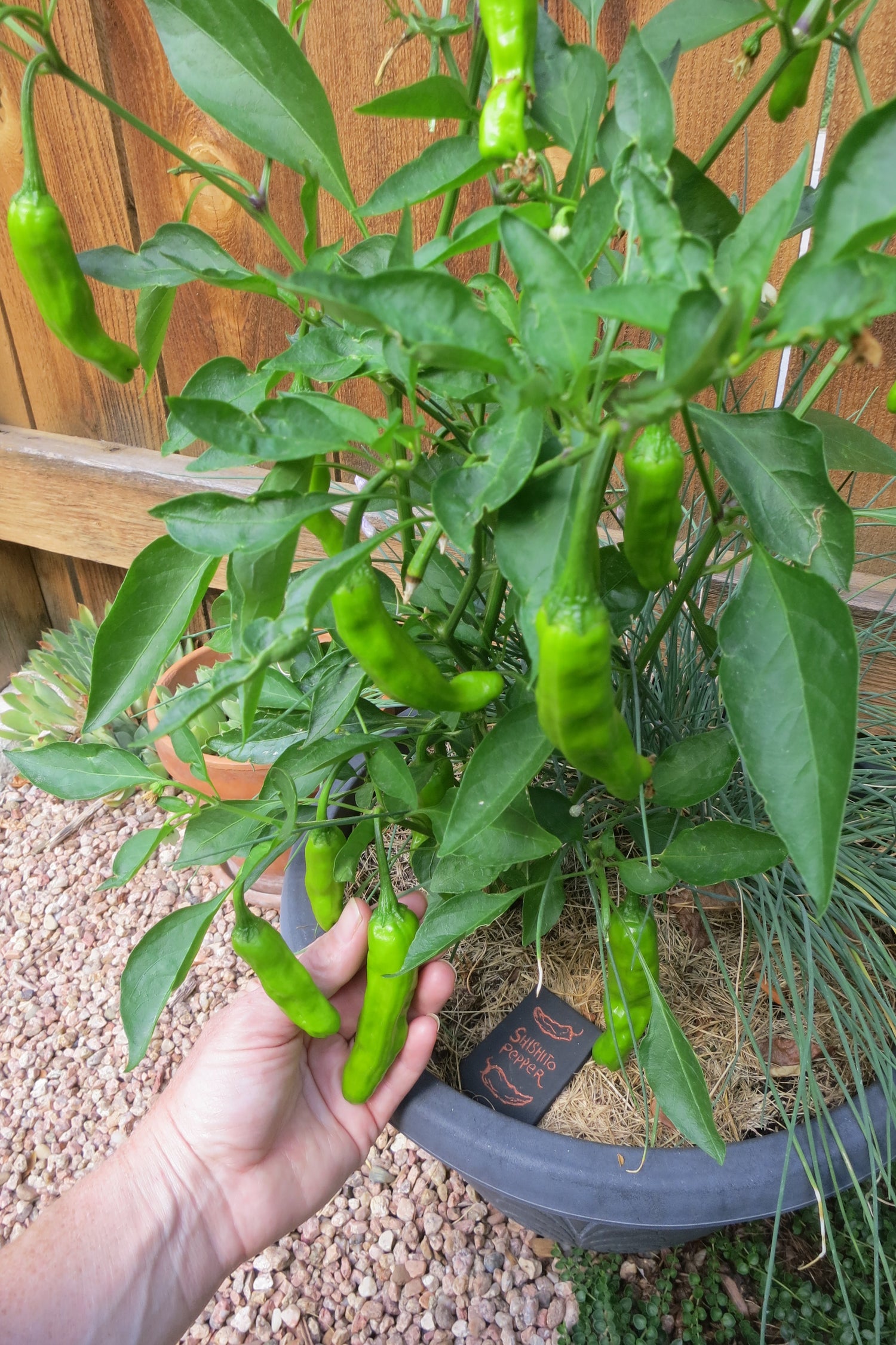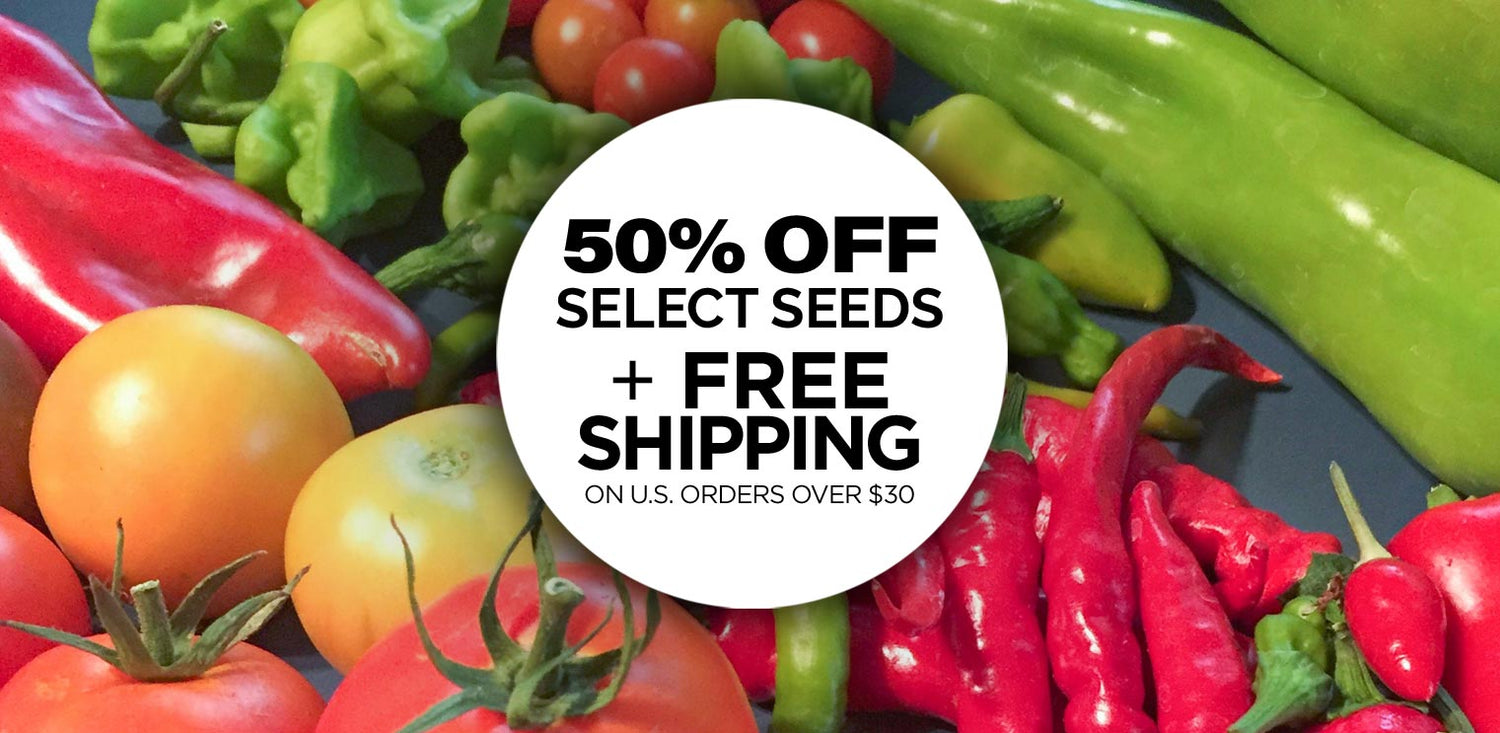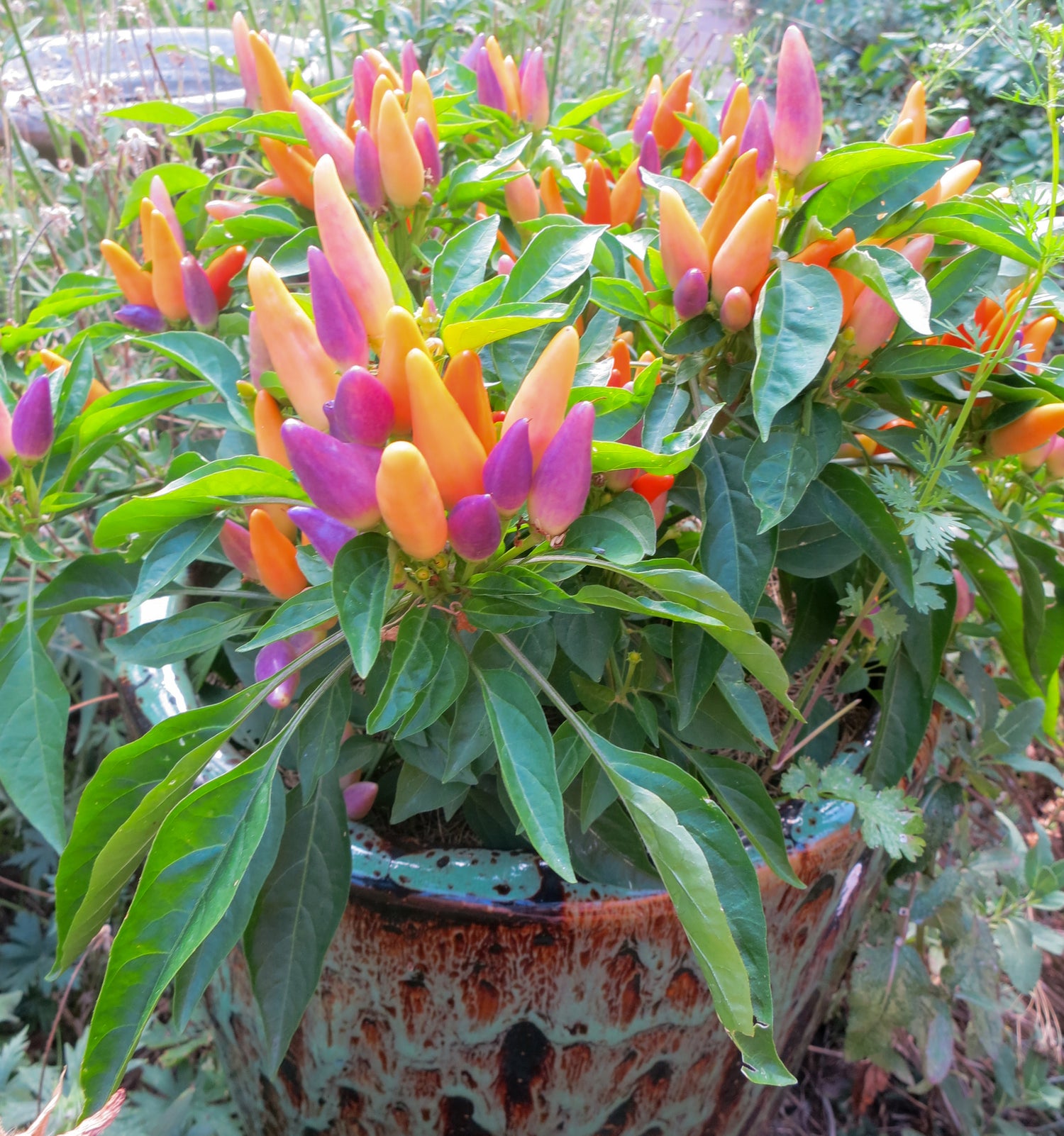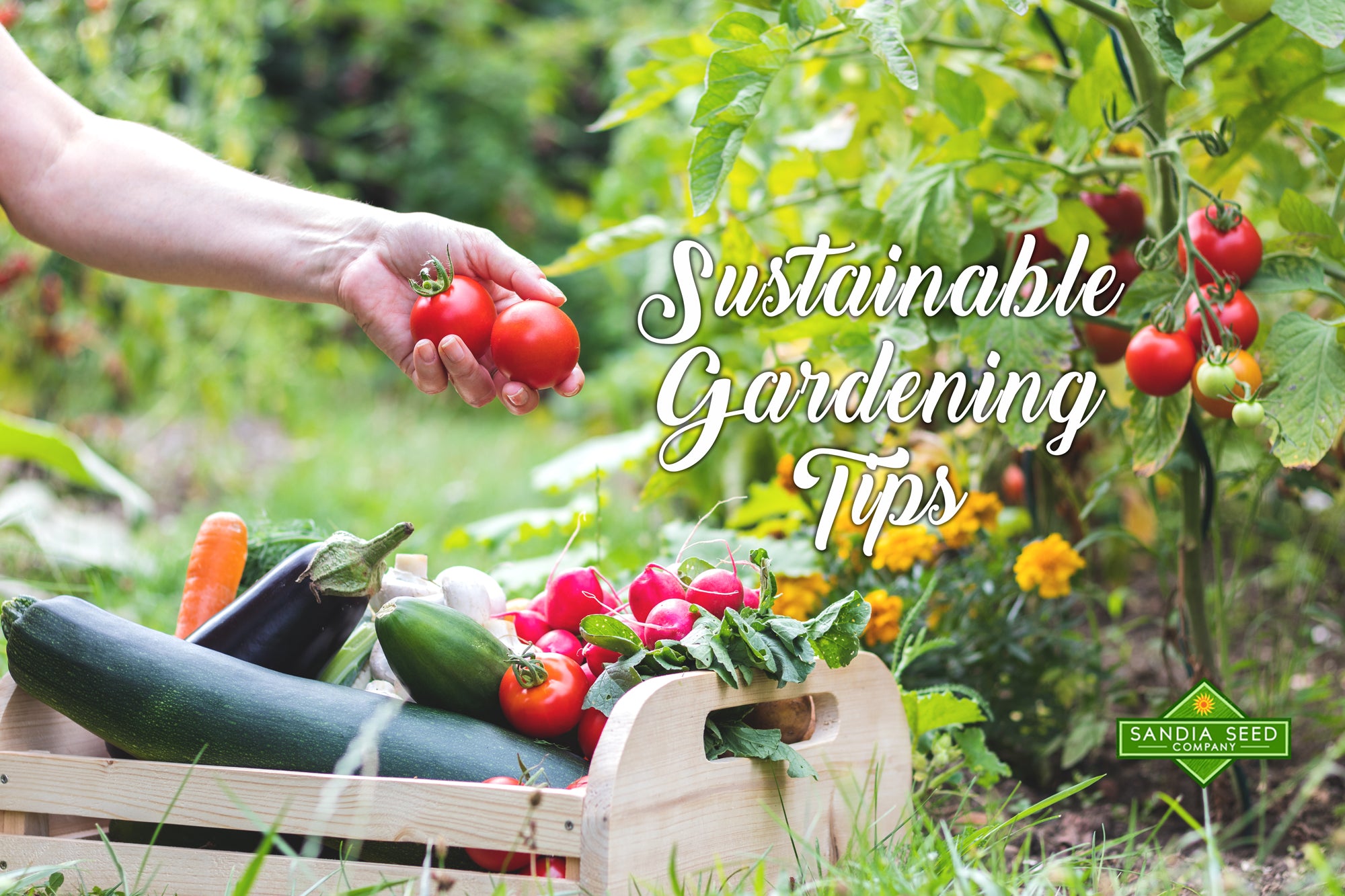
Gardening is a great way to be more sustainable. Growing your own food, herbs, and flowers for pollinators and wildlife is a great way to make a difference!
Here are our top 12 Tips for Sustainable Gardening:
2. Grow from Seeds
Growing your own vegetables and flowers organically from seeds is very sustainable. You can reuse pots each year, cutting down on plastic use, and avoid using any pesticides or herbicides to keep your plants clean and free of chemicals and poisons. Growing from seeds also allows you to grow a wider variety of food and plants that you could purchase from the store! And, by growing your own seeds, you are saving huge amounts of resources that have to be used to grow and transport seedlings to your local store. Here are more great reasons to start your own garden from seed »
3. Grow your own Food
4. Join a Community Garden
Growing food with neighbors is one of the best ways to share knowledge, extra produce, and connect with your community. Other gardeners can also help you water when you are away, and it's great to talk about successes and failures to learn and grow better with every season. It's also wonderful to share seedlings, seeds, and extra veggies in a community garden. Many community gardens also donate a portion of their produce to local food banks which helps everyone eat better.
5. Shop Local!
Shop at Farmer's Markets and support local small businesses. Most people can't grow all of their own food, so the next best thing is buying from local farmers and businesses. Shop online less, think about all the energy for delivery trucks, boxes and packaging that is wasted to deliver items in boxes often one at a time! Lots of garden centers sell our seeds, so ride or walk over to them to buy our seeds if possible. Another great reason to grow your own seeds is that they are super light and use minimum packaging, and, they can fit in a backpack or even a pocket if you were to buy them from your favorite local garden shop. :) Try to reduce your consumption overall... which leads us to... #6
6. Buy Less Stuff
Most of us already have too much stuff! Too many clothes for our closets, too many gardening tools or kitchen gadgets that we don't use, too many pairs of shoes. Try to simplify your life by not buying more and more things you don't need. Keep your older clothes and wear them for as long as possible, repairing if possible when needed, and then recycle them as rags when they've reached the end of their life. Repair your garden gloves if the seams open up or if there is a hole. Make your own compost so you don't have to buy it at the store. Use grass clippings and leaves to mulch your beds rather than buying mulch. If you have one, keep your car as long as possible. Drive less. Skip out on buying another fancy kitchen gadget that you're unlikely to use. When it comes to gifts, make handmade edible gifts such as homemade hot sauces, pickles, salsas, tomato sauce, bread, you name it! Or gift your loved ones with activities and time together, such as going for a walk or hike, or tickets to your local botanic gardens, don't just buy things they don't really need or want!
7. Ride a bike or walk to commute or run errands
Leave the car behind and ride a bike or walk to the store, community garden, work, meetings, or errands. Get a basket to mount on the back of the bike to be able to carry more groceries. Backpacks also work great. Every time you leave the car at home you are saving a huge amount of resources, cutting down on pollution (even electric cars have to be plugged in and use energy!) An added bonus of riding or walking for most of your trips is exercise, plus you can hear the birds, see the flowers blooming, and connect with neighbors.
8. Save and Share Seeds!
Saving seeds is a great way to buy less and grow more food, and they are wonderful to share with family, neighbors and friends. Even if you don't save seeds, if you buy a seed packet often you have way more seeds than you need, so it is wonderful to share them with others! Seeds don't last forever, they need to be grown – so if you overdid it and bought too many seeds, sharing them is a great way to ensure they'll be used. Look for local seed swaps and seed libraries to donate your extra seeds to benefit your community!
9. Buy Organic, Local, and Support CSAs
When you do buy vegetables, try to buy organic if possible. Organic farming is more sustainable and better for the environment and health of everyone. If you can find local farmers that grow sustainably and organically, that's even better. As most of us can't grow all of our own food, finding local farmers is the next best bet! Joining a Community Supported Agriculture (CSAs) program is a great way to get fresh, seasonal produce and support local farmers.
10. Eat Seasonally
It's nearly impossible to grow ALL your food. So when you buy food, buy vegetables that are in season whenever possible, this ensures that they are not being shipped from across the world to land on your plate! Vegetables that are in season are also more nutritious as they have not had to travel for as long or as far. Find locally-grown produce whenever possible to reduce transportation resources and time. Farmer's Markets and CSA's are great for eating seasonally. Bring your own containers or reusable bags for buying produce, or don't bag your produce at all. Avoid buying produce that is wrapped in plastic or packaging, and buy in bulk when possible. And of course, try to grow your own vegetables and herbs so that you can pick them the same day you eat them! Nothing tastes better than a fresh-picked tomato eaten right in the garden while it's still warm from the sun. Fresh herbs are also wonderful to add to all your recipes for top-chef flavors.
11. Grow Native Plants
Native plants can thrive without much or any supplemental water once established, and they will thrive in your climate, making them much easier to care for. Plus, native plants help feed pollinators and wildlife, plus attract beneficial insects and birds that help you with natural pest control on your veggies. Birds love the seeds from native plants, though they also eat tons of insects – in fact, 90 percent of their diet consists of insects—moths, caterpillars, flies, beetles, bugs, plant lice, scale, leafhoppers, and tree hoppers. Chickadees, for example, will catch 350 to 570 caterpillars every day to feed to their brood! Put up bird houses and have a bird bath to provide water for not just the birds, but pollinators and wildlife, too.
12. Mulch your Garden
Mulched soil is much happier than bare soil. Especially in the winter months, it is very beneficial to cover your garden beds with leaves or grass clippings to conserve moisture, feed the soil life, and add nutrients to your soil. In the summer, you can also use mulch around your garden plants to help conserve moisture and keep soil temperatures more consistent for happier vegetable plants. Rather than buying mulch, we like to use grass clippings around our peppers and tomatoes, just make sure not to pile up any much around the stems of your plants.

Happy growing!

